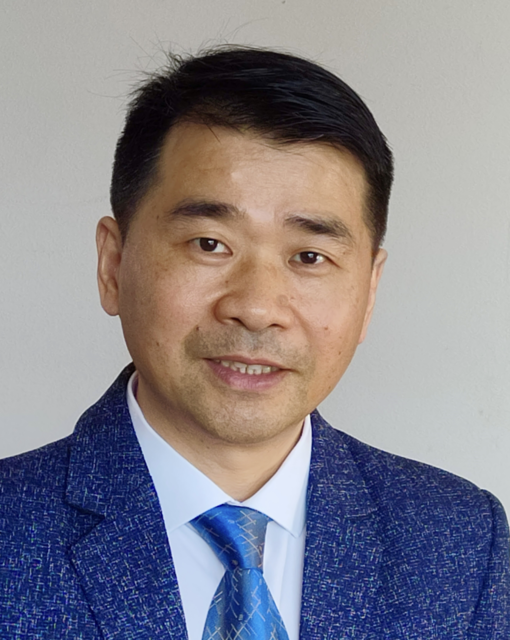Liang Dong, Ph.D.
Integrated Precision Agriculture
The University of Georgia
Recruited: 2025
The epic challenges facing farmers – pests, disease, ever-changing climate – demand sophisticated new farming practices. Liang Dong is innovating in one key area of practice: Using technology to measure plant health at unprecedented levels of precision.
An engineer with deep knowledge of microelectromechanical systems, Dong develops sensors that are placed in soil and on plant crops directly. These sensors provide farmers with a wealth of data to guide decision-making that optimizes plant growth and increases yields. Dong evolved the sensor systems throughout an illustrious 18-year career at Iowa State University, where he led the Microelectronics Research Center, a venerable enterprise that pioneers work in semiconductor materials and devices. He moved his research and team to UGA in the fall of 2025.
Early in his tenure at Iowa State, Dong experimented with sensors and biochips for medical devices. One morning in 2013, he walked by the university’s greenhouse and was struck by the idea of microsensors being put to work in agriculture. “I thought, could I create a kind of miniaturized greenhouse? On a chip?”
Thus began a new chapter of collaborating with crop and soil scientists to explore technology that made farming more exact, efficient and effective. An early accomplishment was developing tiny sensors to instantly detect the presence of nitrogen in plants and soil. The low-cost sensors were found to be as accurate as traditional lab tests and had the potential to dramatically change how farmers manage nitrogen fertilizers. To move the technology to market, Dong co-founded EnGeniousAg, a startup later acquired by CropX.
In 2018, Dong and his team engineered “wearable” sensors that attach to plants to gauge water presence with minimal effect on plant growth. The first set measured water from deepest root to highest leaf; the system later evolved into a sensor-laden tape affixed to the underside of plant leaves. This “plant tattoo” – the first of its kind anywhere – could detect deficits in vapor pressure, providing farmers with a detailed analysis of how much water a plant was losing. Combined with soil-based sensors, the wearable sensor systems could continuously monitor water status across the environment for growing.
Dong continued to improve the water-analysis sensors – the plant leaf itself became the substrate, eliminating the need for tape. With nothing to block the exchange between water and gas on the leaf surface, the new approach assured that the wearable sensors would not interfere with plant growth.
Dong leveraged his progress in sensor innovation to develop a new sensor that measures hydrogen peroxide, which plants emit when they experience stress. Detecting this chemical element in plants is highly challenging. Dong used microneedles coated with a bio-hydrogel as the foundation to an intricate system that ultimately turns even a trace of hydrogen peroxide into a biomarker of plant stress – in real time. A 2025 paper of his chronicled the process and results, and the microneedle strip could be reused as many as nine times.
While at Iowa State, Dong received a prestigious NSF CAREER Award, a five-year grant bestowed to early-career faculty recognized as having the potential to lead in their fields. He was also named a Fellow of the International Association of Advanced Materials, a renowned international scientific organization. Beyond developing sensor technologies for precision agriculture, he also explored other applications for the devices, from detecting biomarkers of breast cancer to developing materials that allow airplanes to evade radar.
While other members of the GRA Academy work to improve agriculture, Dong is Georgia’s first GRA Eminent Scholar working in the field of integrated precision agriculture. He embraces multi-disciplinary research and views his work beyond improving the management of agriculture – he aims to generate sensor data that also informs crop genomics and plant breeding. “For example,” he says, “this sensor data could help scientists understand the resilience of new cultivars they’re developing.”
Research
- Novel sensor technologies for real-time monitoring of soil conditions, plant health, and environmental factors
- Biomedical devices and instrumentation
- Nanotechnology, nanomaterials, nanomanufacturing
- Microelectromechanical systems, microelectronics, semiconductors
- Microfluidics, biochips
Choosing Georgia
“The growing environment is different in Georgia than in Iowa, and I would like my sensors to generate valuable data around different species, such as peanuts, cotton and forest crops. I’m also interested in applying new sensor technologies to promote animal health in poultry and livestock. Georgia is an excellent place to accomplish these goals.”

